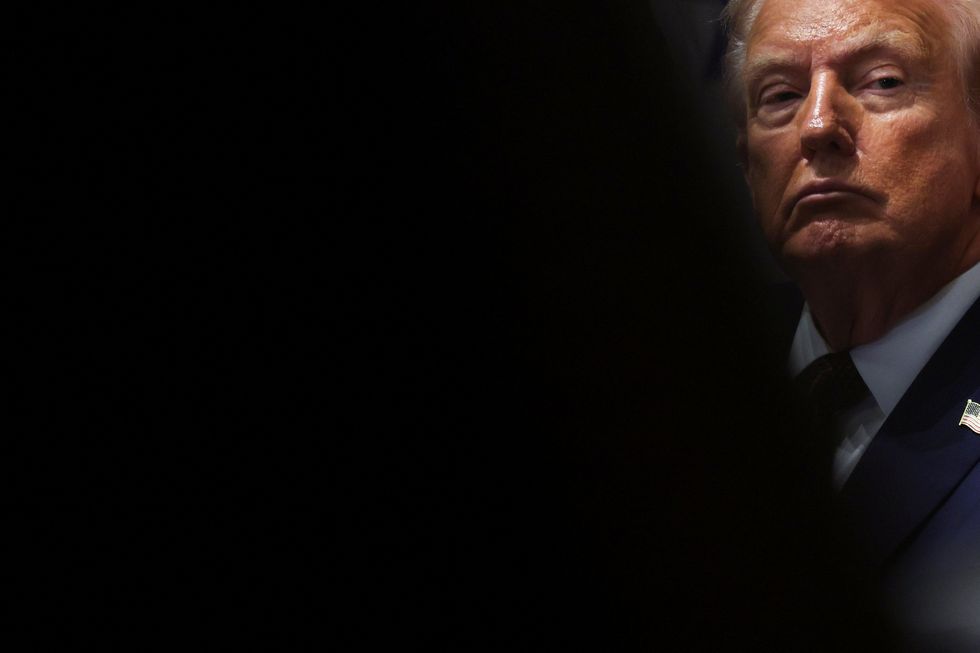World
Trump Proposes Nuclear Weapons Testing Amid Global Tensions

On October 29, 2023, just before a scheduled meeting with China’s President Xi Jinping, former President Donald Trump made a controversial announcement on his social media platform, Truth Social. He stated that he has instructed the Department of War to initiate nuclear weapons testing “on an equal basis” due to other countries’ testing programs. This declaration has raised alarm, given that the United States has not conducted nuclear bomb detonations since 1992.
The distinction between testing nuclear weapons and testing their delivery systems is crucial. While the U.S. continues to test intercontinental ballistic missiles (ICBMs)—with the latest test occurring on November 5, 2023, from the Vandenberg Space Force Base in California—detonating nuclear warheads is a different matter entirely. Observers noted that Trump’s announcement might have been a reaction to Russia’s recent tests of its Burevestnik missile, which is capable of carrying nuclear warheads, although it did not during the test.
Trump’s phrasing of “on an equal basis” may suggest a misunderstanding, as neither China nor Russia is currently conducting nuclear detonations. Experts have pointed out that any actual test detonation would fall under the purview of the Department of Energy, not the Pentagon. The implications of Trump’s words highlight a troubling normalization of nuclear rhetoric among global powers.
Nuclear Testing and Its Consequences
The geopolitical landscape surrounding nuclear weapons is fraught with tension. Russia’s missile tests, designed to evade missile defense systems, and its claims of testing the Poseidon torpedo—intended to create massive waves of irradiated water—further complicate the situation. Although these activities do not constitute nuclear tests in the traditional sense, they contribute to a climate of fear and uncertainty.
If the United States were to conduct a test explosion of a nuclear warhead, it would exacerbate environmental issues linked to nuclear testing. Research suggests that nearly half a million deaths can be traced back to over 1,000 nuclear tests conducted by the U.S. since 1945, highlighting ongoing health and environmental consequences. Cleanup efforts remain inadequate, particularly in locations like the Marshall Islands, where waste from previous tests continues to pose risks.
While Trump’s statements may be interpreted as a response to perceived threats, they resonate with a broader pattern among nuclear-armed nations, which often justify changes in nuclear policy as reactions to unprovoked aggression. The potential for a renewed arms race is troubling, as both Russia and China could feel compelled to resume testing if the U.S. proceeds with its own nuclear tests.
The Human Cost of Nuclear Weapons
Public discourse around nuclear testing often overlooks the profound human impact. Americans, like populations worldwide, find themselves vulnerable to the decisions made by leaders commanding extensive nuclear arsenals, which are significantly more powerful than those used in Hiroshima and Nagasaki.
According to historians, one of the motivations behind the U.S. decision to deploy nuclear weapons in World War II was the desire to confirm their functionality. This historical precedent raises concerns about the implications of any willingness to resume testing. The normalization of such discussions risks embedding nuclear warfare into the fabric of international politics, framing it as an acceptable tool of diplomacy.
As the political climate shifts, the stakes remain alarmingly high. The potential for nuclear testing to become routine again must not be overlooked. A nuclear explosion, regardless of its context, has far-reaching consequences that extend beyond national boundaries.
Emma Claire Foley, a Program Associate at Global Zero, emphasizes the urgency of this issue. Her work focuses on tracking military incidents involving nuclear-armed states, underscoring the need for collective action against the threats posed by nuclear weapons. The continued dialogue surrounding nuclear testing demands vigilance and a commitment to safeguarding human life against the catastrophic possibilities that such weapons represent.
-

 Lifestyle4 months ago
Lifestyle4 months agoLibraries Challenge Rising E-Book Costs Amid Growing Demand
-

 Sports4 months ago
Sports4 months agoTyreek Hill Responds to Tua Tagovailoa’s Comments on Team Dynamics
-

 Sports4 months ago
Sports4 months agoLiverpool Secures Agreement to Sign Young Striker Will Wright
-

 Lifestyle4 months ago
Lifestyle4 months agoSave Your Split Tomatoes: Expert Tips for Gardeners
-

 Lifestyle4 months ago
Lifestyle4 months agoPrincess Beatrice’s Daughter Athena Joins Siblings at London Parade
-

 World4 months ago
World4 months agoWinter Storms Lash New South Wales with Snow, Flood Risks
-

 Science4 months ago
Science4 months agoTrump Administration Moves to Repeal Key Climate Regulation
-

 Science3 months ago
Science3 months agoSan Francisco Hosts Unique Contest to Identify “Performative Males”
-

 Business4 months ago
Business4 months agoSoFi Technologies Shares Slip 2% Following Insider Stock Sale
-

 Science4 months ago
Science4 months agoNew Tool Reveals Link Between Horse Coat Condition and Parasites
-

 Sports4 months ago
Sports4 months agoElon Musk Sculpture Travels From Utah to Yosemite National Park
-

 Science4 months ago
Science4 months agoNew Study Confirms Humans Transported Stonehenge Bluestones







